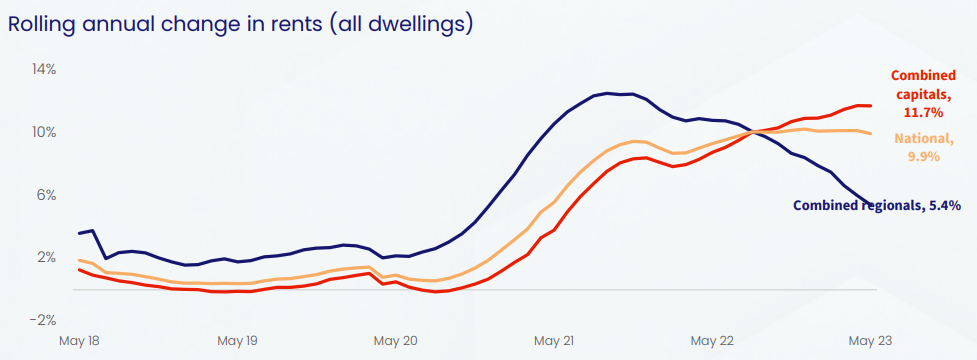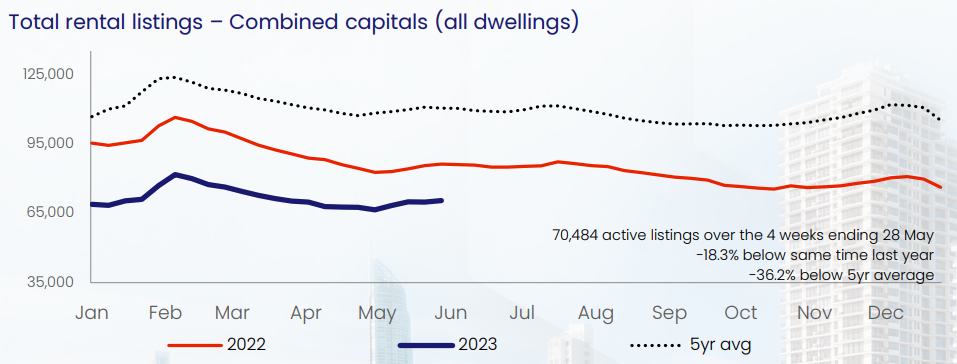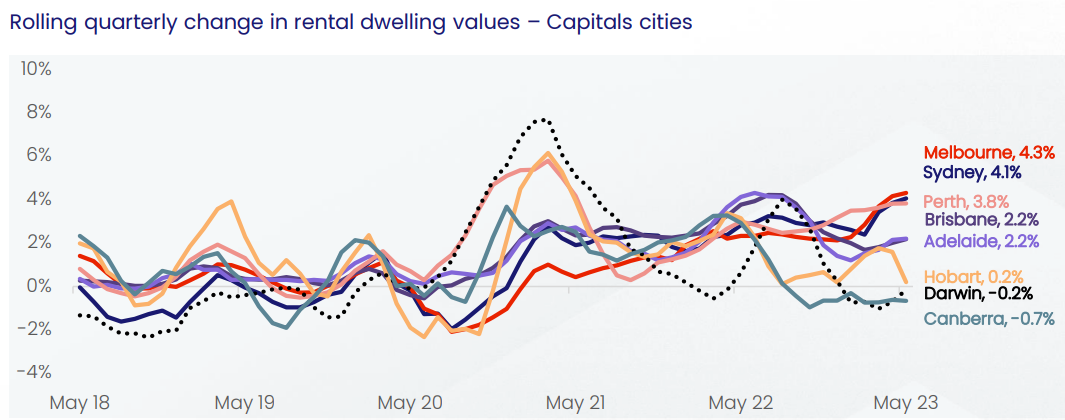The idiocy of Australia’s housing predicament is encapsulated by the federal budget’s population forecasts, which are outlined in the next table:

Source: 2023 federal budget
As you can see, Australia’s population is projected to grow by an unprecedented 524,000 people this financial year on the back of record immigration, led by Victoria (+160,000) and NSW (+144,000).
Australia’s population is also expected to grow by 2.18 million people during the next five years, or by an average of 435,200 people every year, or roughly 1,200 people per day.
That’s on the back of record projected immigration of 1.5 million people over five years.
This population increase is the equivalent of adding five Canberra’s or one Perth’s worth of people to Australia in only five years, but without the necessary housing and infrastructure.
Catering for such a massive population expansion is an impossible job that will inevitably fail, resulting in a worsening housing crisis, skyrocketing rents, rising homelessness, and severe infrastructural bottlenecks.
We are already seeing the impacts, with capital city rents rising at their fastest pace on record in the year to May (+11.7%), according to CoreLogic:

Source: CoreLogic
This follows a dire collapse in rental listings as immigration-driven demand has run well ahead of supply:

Source: CoreLogic
Sydney and Melbourne are leading the nation’s rental growth, which is not surprising given they are receiving the lion’s share of overseas migrants:

Source: CoreLogic
The rental situation will only worsen in Sydney and Melbourne, given Victoria (+694,000) and New South Wales (+578,000) are projected in the federal budget to experience the highest population growth in the five years to 2026-27.
Sadly, the Albanese government has given no consideration to the effects of its record immigration expansion on liveability and infrastructure provision in these cities, nor to where these migrants will live.

